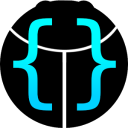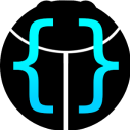
Kannya Prashala School Rd Loni Kalbhor Gaon, Loni Kalbhor, India - 412201
Verified
5
Details verified of N.E.S.D Labs✕
 Identity
Identity
 Education
Education
Know how UrbanPro verifies Tutor details
Identity is verified based on matching the details uploaded by the Tutor with government databases.
NESD Labs
Kuber Park
Kannya Prashala School Rd Loni Kalbhor Gaon, Loni Kalbhor, India - 412201
Landmark: Bazar mala Road
![]() Phone Verified
Phone Verified
![]() Email Verified
Email Verified
Report this Profile
Is this listing inaccurate or duplicate? Any other problem?
Please tell us about the problem and we will fix it.
Class Location
![]() Online (video chat via skype, google hangout etc)
Online (video chat via skype, google hangout etc)
![]() At the Institute
At the Institute
Class Location
![]() Online (video chat via skype, google hangout etc)
Online (video chat via skype, google hangout etc)
![]() At the Institute
At the Institute
BCA Subject
C Language Programming, Microprocessor, Programming in C++
Type of class
Regular Classes, Crash Course
Class strength catered to
One on one/ Private Tutions, Group Classes
Class Location
![]() Online (video chat via skype, google hangout etc)
Online (video chat via skype, google hangout etc)
![]() At the Institute
At the Institute
BTech Electrical & Electronics subjects
Digital Control Systems, Data Structures & Algorithms, Microprocessors, Real Time Systems, Power Electronics, Algorithms And Data Structures, Design Of Intelligent Electronic Devices, Circuit Theory, Control Systems, Design Of Embedded Controllers, (Dc- Ac) Direct Current-Alternatiing Current System Interaction
BTech Branch
BTech Electrical & Electronics
Type of class
Regular Classes, Crash Course
Class strength catered to
One on one/ Private Tutions, Group Classes
Class Location
![]() Online (video chat via skype, google hangout etc)
Online (video chat via skype, google hangout etc)
![]() At the Institute
At the Institute
Class Location
![]() Online (video chat via skype, google hangout etc)
Online (video chat via skype, google hangout etc)
![]() At the Institute
At the Institute
4 out of 5 2 reviews
Divya Srivastava
"The curriculum of the course is comprehensive, covering a wide range of topics relevant to Embedded Systems development. Students get a solid foundation on both hardware and software aspects of Embedded Systems. The course adopts a hands-on approach, and students learn by doing. My colleagues have done their training from NSED LABS and they have got a better career growth. "
Kanakanti Srinivas
"Completed Btech in electronics and communication in 2023, Done a multiple projects academic years In IOT domain , as well as done internship , mostly interested in electronics, and well currently developing my coding skills. "
1. Which classes do you teach?
We teach BCA Tuition, BTech Tuition, C Language, Embedded C, Embedded Systems and Programming Languages Classes
2. Do you provide a demo class?
Yes, We provide a free demo class.
3. Where are you located?
We are located in Kannya Prashala School Rd Loni Kalbhor Gaon, Loni Kalbhor.
Answered on 23/09/2023 Learn IT Courses/Programming Languages/C Language
In computer programming, the volatile qualifier is used to indicate to the compiler that a variable can be changed by some external entity that is not explicitly specified in the program. It is primarily used when working with multi-threaded or embedded systems where variables can be modified by hardware, interrupts, or other threads outside of the normal flow of program execution.
The volatile keyword informs the compiler not to optimize access to the variable by caching its value in a register or by reordering memory accesses. This is because the value of a volatile variable can change at any time due to external factors that the compiler may not be aware of, so it needs to be re-read from memory every time it is accessed.
Here's an example in C/C++:
volatile int sensorValue; // Declare a volatile integer variable
int main() {while (1) {// Read the volatile variableint reading = sensorValue;// Perform some operations with the reading// Compiler won't optimize away the reading}return 0;}
Answered on 23/09/2023 Learn IT Courses/Programming Languages/C Language
In computer programming, the volatile qualifier is used to indicate to the compiler that a variable can be changed by some external entity that is not explicitly specified in the program. It is primarily used when working with multi-threaded or embedded systems where variables can be modified by hardware, interrupts, or other threads outside of the normal flow of program execution.
The volatile keyword informs the compiler not to optimize access to the variable by caching its value in a register or by reordering memory accesses. This is because the value of a volatile variable can change at any time due to external factors that the compiler may not be aware of, so it needs to be re-read from memory every time it is accessed.
Here's an example in C/C++:
volatile int sensorValue; // Declare a volatile integer variable
int main() { while (1) { // Read the volatile variable int reading = sensorValue;
// Perform some operations with the reading
// Compiler won't optimize away the reading } return 0;}
Class Location
![]() Online (video chat via skype, google hangout etc)
Online (video chat via skype, google hangout etc)
![]() At the Institute
At the Institute
Class Location
![]() Online (video chat via skype, google hangout etc)
Online (video chat via skype, google hangout etc)
![]() At the Institute
At the Institute
BCA Subject
C Language Programming, Microprocessor, Programming in C++
Type of class
Regular Classes, Crash Course
Class strength catered to
One on one/ Private Tutions, Group Classes
Class Location
![]() Online (video chat via skype, google hangout etc)
Online (video chat via skype, google hangout etc)
![]() At the Institute
At the Institute
BTech Electrical & Electronics subjects
Digital Control Systems, Data Structures & Algorithms, Microprocessors, Real Time Systems, Power Electronics, Algorithms And Data Structures, Design Of Intelligent Electronic Devices, Circuit Theory, Control Systems, Design Of Embedded Controllers, (Dc- Ac) Direct Current-Alternatiing Current System Interaction
BTech Branch
BTech Electrical & Electronics
Type of class
Regular Classes, Crash Course
Class strength catered to
One on one/ Private Tutions, Group Classes
Class Location
![]() Online (video chat via skype, google hangout etc)
Online (video chat via skype, google hangout etc)
![]() At the Institute
At the Institute
Class Location
![]() Online (video chat via skype, google hangout etc)
Online (video chat via skype, google hangout etc)
![]() At the Institute
At the Institute
4 out of 5 2 reviews
Divya Srivastava
"The curriculum of the course is comprehensive, covering a wide range of topics relevant to Embedded Systems development. Students get a solid foundation on both hardware and software aspects of Embedded Systems. The course adopts a hands-on approach, and students learn by doing. My colleagues have done their training from NSED LABS and they have got a better career growth. "
Kanakanti Srinivas
"Completed Btech in electronics and communication in 2023, Done a multiple projects academic years In IOT domain , as well as done internship , mostly interested in electronics, and well currently developing my coding skills. "
Answered on 23/09/2023 Learn IT Courses/Programming Languages/C Language
In computer programming, the volatile qualifier is used to indicate to the compiler that a variable can be changed by some external entity that is not explicitly specified in the program. It is primarily used when working with multi-threaded or embedded systems where variables can be modified by hardware, interrupts, or other threads outside of the normal flow of program execution.
The volatile keyword informs the compiler not to optimize access to the variable by caching its value in a register or by reordering memory accesses. This is because the value of a volatile variable can change at any time due to external factors that the compiler may not be aware of, so it needs to be re-read from memory every time it is accessed.
Here's an example in C/C++:
volatile int sensorValue; // Declare a volatile integer variable
int main() {while (1) {// Read the volatile variableint reading = sensorValue;// Perform some operations with the reading// Compiler won't optimize away the reading}return 0;}
Answered on 23/09/2023 Learn IT Courses/Programming Languages/C Language
In computer programming, the volatile qualifier is used to indicate to the compiler that a variable can be changed by some external entity that is not explicitly specified in the program. It is primarily used when working with multi-threaded or embedded systems where variables can be modified by hardware, interrupts, or other threads outside of the normal flow of program execution.
The volatile keyword informs the compiler not to optimize access to the variable by caching its value in a register or by reordering memory accesses. This is because the value of a volatile variable can change at any time due to external factors that the compiler may not be aware of, so it needs to be re-read from memory every time it is accessed.
Here's an example in C/C++:
volatile int sensorValue; // Declare a volatile integer variable
int main() { while (1) { // Read the volatile variable int reading = sensorValue;
// Perform some operations with the reading
// Compiler won't optimize away the reading } return 0;}

Share this Profile
Also have a look at
Reply to 's review
Enter your reply*
Your reply has been successfully submitted.
Certified
The Certified badge indicates that the Tutor has received good amount of positive feedback from Students.